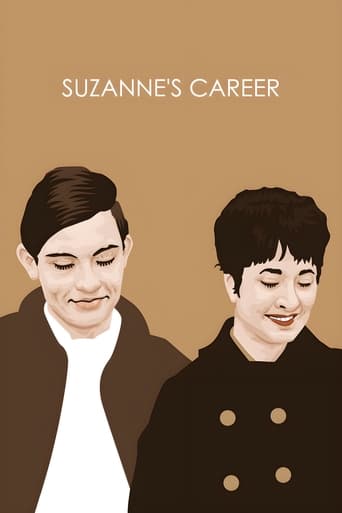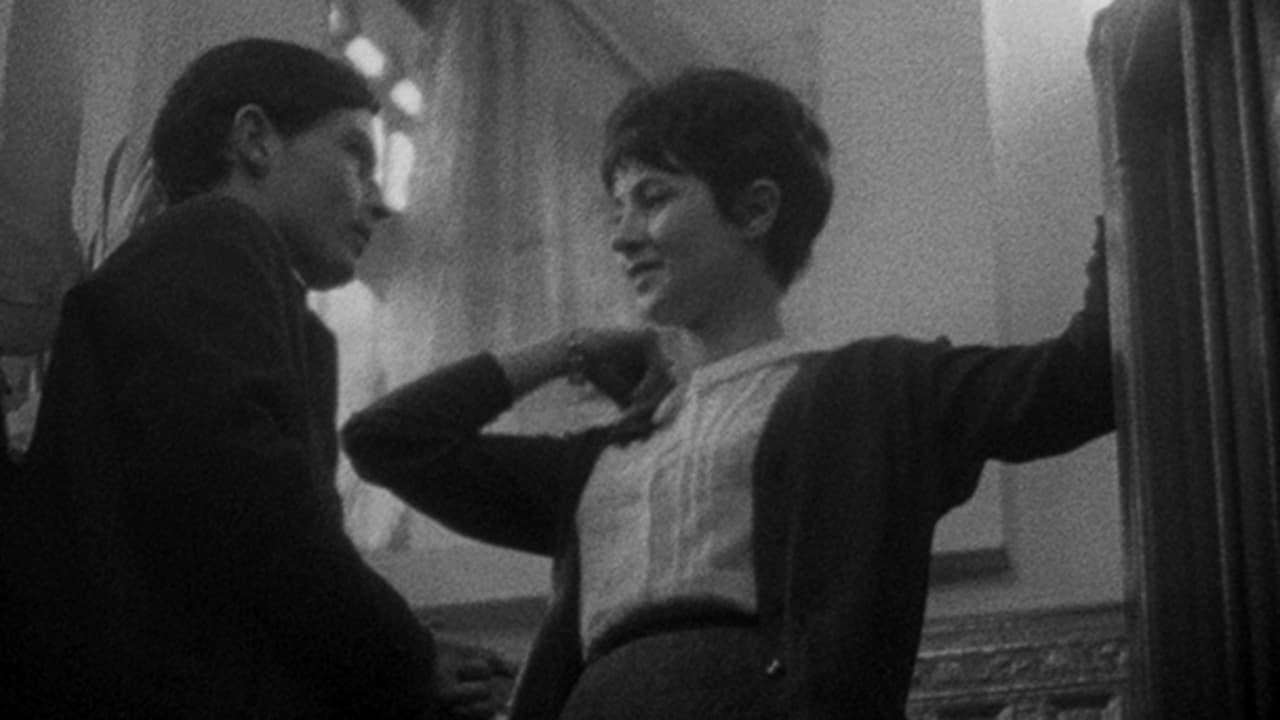Hitchcoc
This is the second of the moral tales. Rohmer is a bit of an acquired taste. For me, it's that the characters are often unlikeable or weak. In this one, Suzanne is a young woman, enamored with Gillaume, a self centered bad boy Jerk who uses his friends. She is continually mistreated by this guy, and, of course, goes back to him. Bertrand, the feckless other man, Gillaume's friend, is taken with Suzanne and has a seemingly hopeless, puppy-like relationship with her. She pays when they go out, draining her resources. But she is actually using him. What happens is inconsequential. Rohmer is practicing his craft, developing characters, playing them against each other, and keeping out of it. When people meet, they engage in boring conversations. They are so introspective that we wish something would happen, but nothing really does. Just look at these people and enjoy the mastery of a director who knows how to make them real.
MartinHafer
"Suzanne's Career" is a rather slow moving story about three friends. One is a bit of a Romeo and is focused on his current conquest, Suzanne. The other is a friend who narrates the film. His role is odd--he just hangs around the two and acts a bit like a chaperon--a chaperon who disappears when the pair want to sleep together. Eventually, the simple girl, Suzanne, turns out to be a bit more clever than either guy had expected and soon begins to make eyes at the chaperon. What is going on here? See the film yourself if you'd like to know.Watching "Suzanne's Career" reminds me of a home movie--a very good home movie, but a home movie nonetheless. It appears to have been made using an 8mm camera, is quite grainy, have occasionally sloppy edits and has no titles or introduction. The camera also appears to have been hand-held at times and is, occasionally, a bit jerky. Because of all these factors and the non-professional style of the acting, it's not very easy to take this film seriously. The way I see it, it's a way for Eric Rohmer fans to see his early works in order to see how much he improved and evolved over the next few decades. And because of all this, it's NOT a movie for the casual viewer--more for the die-hard Rohmer fans. And, because I assume this was only made for Rohmer and his New Wave buddies, I really don't think it's possible to score this one.By the way, twice in the film the line "Girls like to be forced" was repeated. How very progressive!!
st-shot
The MO is the same the usual suspects in place in Erich Rohmer's second of his six moral tales. Lifeless amateur actors, cinematic style sacrificed for literary interior monologues about blasé people leading unremarkable lives. Suzanne is basically a three character story told by Bertrand, a bit of a self righteous twerp who remains conflicted about his feelings for the innocent and gullible Susan and his relationship with the amoral Guillaume who exploits Susan. Both men have a low opinion of Susan who in part brings it on herself by allowing the men to use her for her money and in the case of the rakish Guillaume for sex as well.More concerned with character than plot, Rohmer gives us healthy servings of pettiness, ego, condescension and denial served up by a self absorbed threesome blind to every one's view but their own. Less than an hour long (Rohmer time) the pace is still slow and the characters repetitious bad habits irritating but if one remains patient is rewarded with an ending rich in truth.While the more polished, bigger budgeted and lengthier later tales such as Claire's Knee and Love in the Afternoon have a more professional patina about them Susann sans all these trappings is still told in the same Rohmer unique way.The films of Erich Rohmer are an acquired taste. In Night Moves (75), a hard boiled private investigator played by Gene Hackman says viewing a Rohmer film is like watching paint dry. For twenty years I agreed with this assessment. I may still, but once dried and finished I now see a work of interesting art that is both challenging and pure.Susanne is an interesting sketch but for those unfamiliar with Rohmer, I would recommend any of the last three of the six tales first for their accessibility. Watch one and if it doesn't agree with you, wait ten to twenty years and try again. In Rohmer's case patience is a necessity.
Howard Schumann
In Suzanne's Career, the 54-minute second film of Rohmer's group of Six Moral Tales, two friends, both students at a local university, vie for the affections of Suzanne (Catherine See). Guillame (Christian Charriere) is the more aggressive and the most manipulative but Bertrand (Phillipe Beuzen) goes along with his schemes and his character is not beyond blemish. Both scheme to have Suzanne pay for their good times and ignore her at parties to make her jealous while telling each other how they detest her.There is a great deal of narration in the film and we are privy to Bertrand's thoughts and feelings as he sorts out for himself what is right and what is wrong. Suzanne is sweet but seemingly rather passive and easily exploited and we root for her to assert herself, and in typical Rohmer style we don't have to wait very long. This is a lovely film and, though it goes on a bit too long in pursuing its resolution, the ending is deliciously satisfying.


 AD
AD
